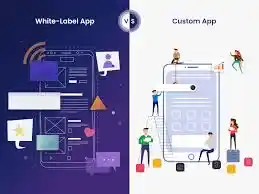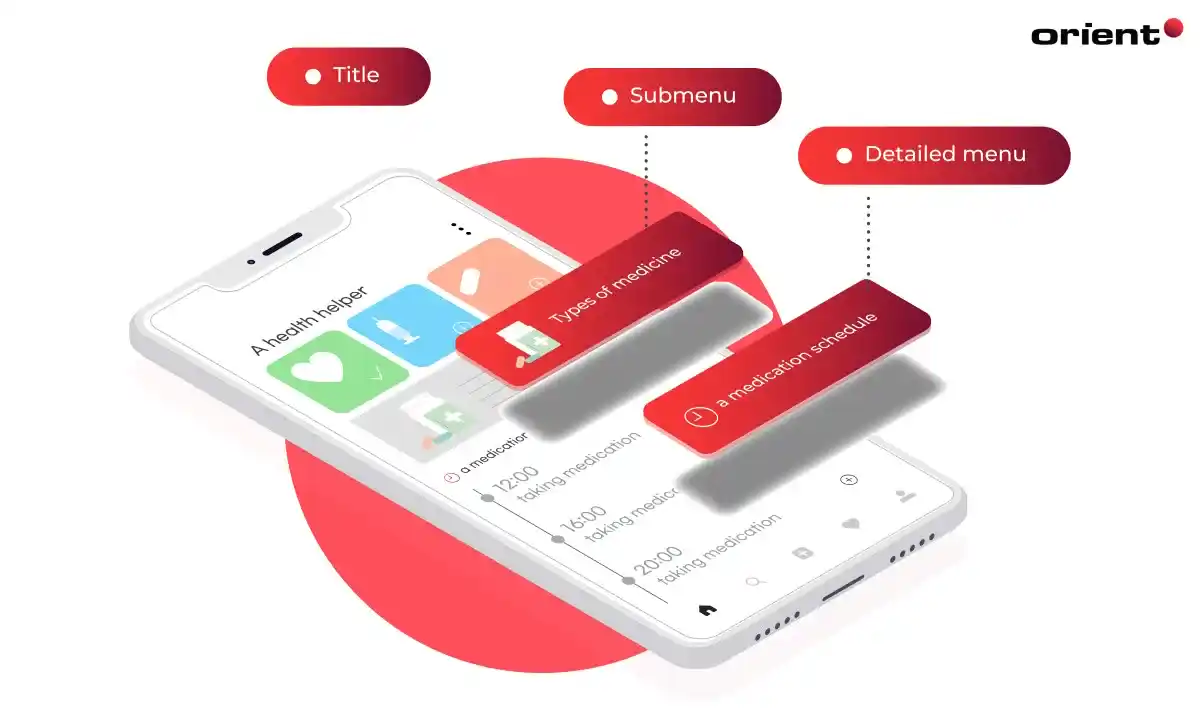Table of Contents
In today’s fast-paced digital landscape, startups and entrepreneurs need to move quickly while keeping costs low. White-label apps offer an efficient, customizable solution that allows businesses to launch mobile or web applications under their own brand without the time and expense of building from scratch. These ready-made platforms empower startups to scale faster, enhance brand visibility, and focus on growth.
In this article, we explore the 10 powerful benefits white-label app bring to startups, and why they are becoming an essential tool for modern entrepreneurs looking to stay ahead.
What is a White-Label App?
A white-label app is a pre-built, customizable software application developed by a third-party provider but branded and marketed by another company as its own. These apps are typically designed to be rebranded, allowing businesses to add their logos, color schemes, and custom features without the need to develop an app from scratch. White-label apps are commonly used in mobile applications (iOS and Android), web apps, or even desktop software.
The main advantage of white-label apps is the ability to launch a product quickly and affordably. Instead of spending time and resources building an app from the ground up, businesses can leverage an existing platform, modify it to fit their brand, and offer it to their customers. This solution is particularly beneficial for startups, small businesses, and companies looking for cost-effective digital solutions.
Key features of white-label apps include:
- Faster Time-to-Market: Since the core functionality is pre-built, companies can launch quickly.
- Customizable Branding: Allows businesses to personalize the app with their branding elements.
- Cost-Effective: White-label apps are typically much cheaper than custom-built apps.
- Ongoing Maintenance: The third-party provider usually handles updates, security, and technical support, reducing the burden on the business.
Benefits of White-Label App
1. Faster Time-to-Market
- One of the biggest advantages of white-label apps is the reduced time it takes to launch.
- Since the core structure and functionality of the app are already developed, businesses can skip the lengthy development phase and move straight to branding and customization.
- This quick turnaround is especially crucial for startups and businesses looking to gain a competitive edge or enter the market before their competitors.
2. Cost-Effective Solution
- Building an app from scratch can be expensive, often involving a large team of developers, designers, and testers.
- A white-label app, however, dramatically reduces these costs by offering a ready-made solution.
- Instead of investing in the full lifecycle of app development, businesses pay a fraction of the cost to customize an existing app, making this a highly cost-effective solution, particularly for small businesses and startups with limited budgets.

3. Customizable Branding
- White-label apps offer the flexibility to tailor the app’s appearance and features to match your brand identity.
- Businesses can easily add their logos, choose color schemes, and even modify specific user interface elements to ensure that the app aligns with their brand aesthetics. This allows companies to deliver a consistent brand experience to customers across different digital touchpoints, enhancing brand recognition and trust.
4. Pre-Tested and Reliable
- Developing a new app from scratch often involves a lengthy testing phase to iron out bugs and glitches.
- White-label apps, on the other hand, are pre-tested across multiple use cases and have already been used by other businesses, ensuring their reliability and stability.
- This allows companies to avoid common technical issues, offering customers a more seamless experience from day one.
5. Easier Maintenance and Updates
- App maintenance is one of the most challenging aspects of software development, requiring constant updates, bug fixes, and compatibility checks with new devices and operating systems.
- With white-label apps, these responsibilities typically fall on the third-party provider.
- They handle all technical maintenance, ensuring that the app stays up-to-date with the latest features and security patches, allowing businesses to focus on core activities without worrying about technical issues.
6. Scalability for Growing Businesses
- White-label apps are often designed to be scalable, meaning they can grow alongside your business.
- As your customer base expands, you can easily scale the app to accommodate more users, add new features, or upgrade the infrastructure without needing to start from scratch.
- This is ideal for businesses that anticipate rapid growth but don’t want the headache of redeveloping an app every time their need it.
7. Feature-rich with Ready-to-Use Modules
- Most white-label apps come equipped with a variety of essential features that are ready to be activated, such as payment gateways, user authentication, push notifications, analytics, and social media integrations.
- These pre-built modules save significant development time and offer businesses the ability to provide users with a full-featured app right from the start.
- Companies can also selectively turn features on or off depending on their target audience or business needs.

8. Focus on Core Business Objectives
- Building and maintaining an app from scratch can be a distraction from a company’s core operations, especially for non-technical businesses.
- By opting for a white-label app, companies can delegate the complexities of app development to the third-party provider and instead focus on key growth areas such as marketing, customer service, and product development. This allows businesses to stay agile and concentrate their efforts on expanding their market presence.
9. Reduced Risk and Lower Development Uncertainty
- Developing an app from scratch carries inherent risks, such as project delays, unexpected bugs, and increased development costs.
- White-label apps significantly reduce these risks because they are based on proven, pre-existing frameworks.
- The time and cost savings, coupled with lower technical risks, make white-label solutions a safer bet for companies that need to ensure the success of their digital initiatives.
10. Access to Industry Expertise
- White-label apps are typically developed by teams of expert developers and designers who have specialized experience in building robust, user-friendly applications.
- By choosing a white-label solution, businesses can tap into this expertise without having to build their own in-house development team.
- This ensures that the final product is of high quality and meets industry standards, offering a professional-grade app experience that is hard to achieve independently.
Conclusion
White-label app offer a powerful solution for businesses looking to enter the mobile or digital market quickly, efficiently, and cost-effectively. By leveraging pre-built, customizable platforms, companies can focus on their core operations while benefiting from reduced development time, lower costs, and reliable, tested performance.
The ability to scale, customize branding, and integrate essential features make white-label apps an ideal choice for startups, small businesses, and entrepreneurs seeking to establish a strong digital presence.
With the added advantage of ongoing technical support and maintenance from the third-party provider, white-label apps enable businesses to stay agile, innovate faster, and grow confidently in today’s competitive landscape.
Whether you’re looking to boost customer engagement or enhance brand visibility, white-label apps provide a low-risk, high-reward approach to expanding your digital offerings.





